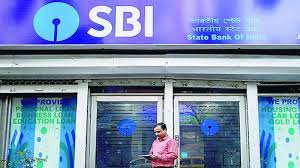Following the Election Commission’s publication of the electoral bonds data on its website, a five-judge bench of the Supreme Court on March 15 inquired why the State Bank of India (SBI) hadn’t provided alphanumeric numbers on the bonds to the poll panel.
The case is scheduled for further hearing on March 18. Chief Justice of India DY Chandrachud noted during the proceedings that SBI had failed to furnish the electoral bond numbers despite a prior order instructing them to do so. Solicitor General Tushar Mehta, representing the Union government, informed the court that SBI, not being a party in the electoral bonds case, was not present in court. Mehta requested the court to serve notice to SBI before issuing any directives.
Expressing concern, CJI remarked, “Why are they absent today? They should be present for matters concerning electoral bonds.” Nonetheless, the court issued notice to SBI and instructed the bank’s lawyers to appear in court on March 18.
The Supreme Court was addressing an application filed by the Election Commission of India (ECI) in the electoral bonds case, seeking the return of documents submitted in November 2023.
During the hearing, the bench directed the SC’s judicial registrar to ensure that the data submitted by EC is scanned and returned to the poll panel by 5 PM the following day. The EC can then upload these documents on its website, the court emphasized.
The Election Commission had submitted all electoral bond data in a sealed cover as per the court’s directive. The plea from the poll panel stated that no copies of the documents filed before the court were retained, in compliance with the order.
On March 11, the Supreme Court instructed the EC to maintain documents containing electoral bond details in its office. Accordingly, the EC requested the return of all documents to fulfill this requirement.
On March 14, the EC published electoral bond details provided by the State Bank of India, which had supplied the data in compliance with the court’s order.
Summary of Previous Developments:
On March 11, the Supreme Court rejected SBI’s plea for an extension until June 30 to disclose details of electoral bonds encashed by political parties. The court directed SBI to share all details with EC by March 12 and instructed EC to publish it by March 15.
These proceedings followed the February 2024 Supreme Court judgment declaring electoral bonds unconstitutional due to their non-disclosure of information regarding political party funding, which was deemed violative of citizens’ right to information.



